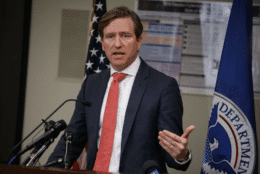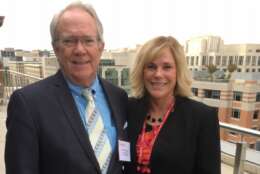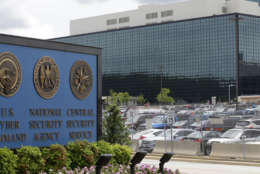ransomware
-
Chris Krebs, the director of the Cybersecurity and Infrastructure Security Agency at DHS, said recent ransomware attacks on Baltimore, Louisiana and Texas brought to light the need for a more coordinated federal, state, local and private sector response to cyber attacks.
November 05, 2019 -
Cybersecurity awareness programs are not a one and done event, but an area of continuous and universal reinforcement. Laws may be needed to require ransomware incident reporting and perhaps prohibit ransom payment.
October 17, 2019 -
Local officials examined the challenge of educating executive leadership on cybersecurity importance.
October 10, 2019 -
One of the most troublesome forms of cyber attack, ransomware famously hit Baltimore earlier this year.
September 10, 2019 -
NSA’s six-year-old program challenges students and others to solve a multi-step cybersecurity problem as a way to expose them to the type of work the agency and the government does.
June 13, 2019 -
Patrick Knight, a senior director of cyber strategy and technology at Veriato, outlines basic steps for agencies to take as ransomware attacks become more prevalent.
April 03, 2018 -
Because individuals and businesses heavily rely on the internet, it’s essential to maintain a safe place online and take proactive measures to protect against a data breach, like ransomware, using a multilayered approach.
December 12, 2017 -
Pentagon cybersecurity officials say two global ransomware attacks highlighted improvements the Defense Department has made to its ability to command and control its own networks, but also showed areas that are ripe for improvement.
July 24, 2017 -
Clark Campbell, the vice president for public sector for BDNA, argues that if agencies don’t address end of life technology, the next cyber attack could be much worse.
July 11, 2017 -
Jeanette Manfra, the acting deputy undersecretary for cybersecurity at the Homeland Security Department, offered an in-depth look into the steps DHS and the government took to keep federal agencies safe from WannaCry.
June 29, 2017 Allan Liska, threat intelligence analyst at Recorded Future, joins host Derrick Dortch on this week's Fed Access to discuss the rise in ransomware attacks around the world, and what you can do to protect your company or agency from these threats. July 7, 2017
June 22, 2017-
Adriane Burton, the chief information officer at Health Resources and Services Administration (HRSA) in HHS, said the department’s incident response planning paid off during the WannaCry vulnerability.
June 16, 2017 -
Federal News Radio has decided to remove the content of this article after recent investigative reports have called into question the credibility of the expert interviewed.
May 23, 2017 John Jolly, president and CEO at Syncurity, joins host John Gilroy to explain how his company can help federal IT professions avoid ransomware attacks like "WannaCry". May 23, 2017
May 22, 2017-
The Office of Management and Budget and the Department of Homeland Security led a much more coordinated and informed defense against the WannaCry cyber attack that began May 12.
May 22, 2017













